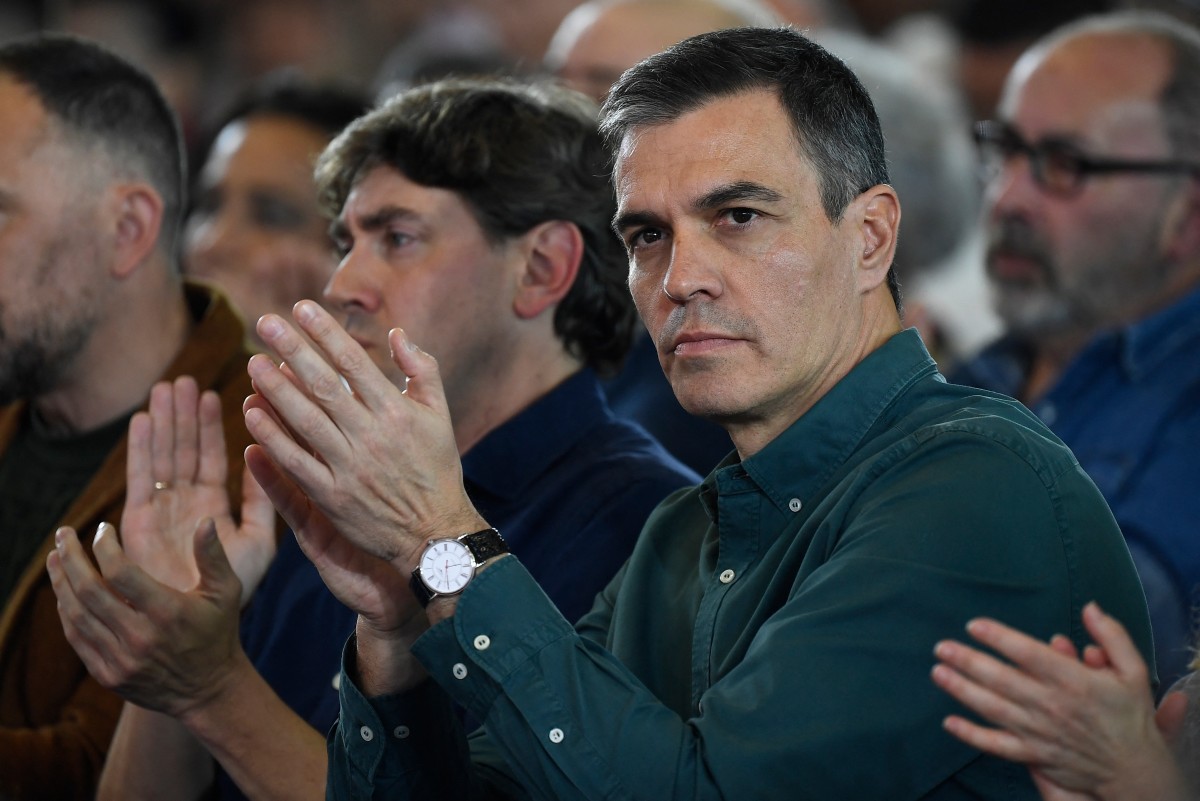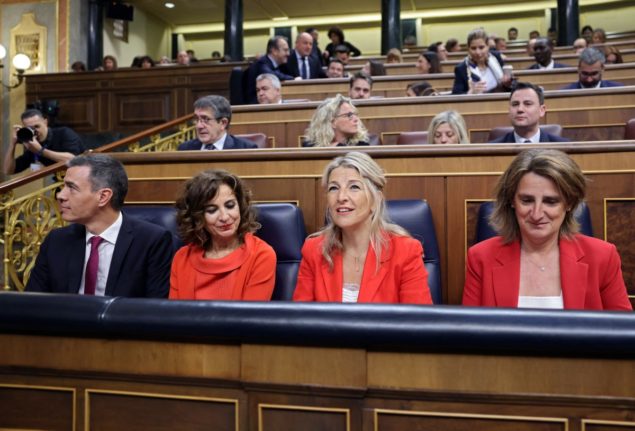Sánchez has decided to take a break from his agenda until Monday April 29th to reflect on his continuity in office after a Madrid court “opened an investigation into Begoña Gómez (Sánchez’s wife) for the alleged offence of influence peddling and corruption”.
This came in response to a complaint by Manos Limpias (Clean Hands), an anti-corruption pressure group whose leader is linked to the far right.
“I need to stop and think” in order to decide “whether I should continue to head the government or whether I should give up this honour,” Sánchez wrote in a letter posted on X, formerly Twitter.
READ MORE: Spain’s PM may quit over wife’s corruption probe
The 52-year-old leader stressed he has no “attachment to the position” of PM and that he needs to assess whether it is worth staying in the premiership, alleging a smear campaign, or “strategy of harassment and demolition”, against him and his wife Begoña Gómez.
So what happens if on April 29th Pedro Sánchez announces he’s stepping down as Prime Minister of Spain?
What happens next if Sánchez quits?
Article 101 of the Spanish Constitution covers scenarios such as the resignation or death of the Prime Minister, as well as motions of no confidence.
The resignation of el Presidente del Gobierno would mean that the entire Cabinet or Council of Ministers would continue in office until a new PM was appointed.
However, the ruling left-wing coalition government would be limited in its powers, without the capacity to legislate.
Who would be Spain’s next Prime Minister and who chooses him/her?
Even though Spain has three Deputy Prime Ministers (María Jesús Montero, Yolanda Díaz and Teresa Ribera), none of them would automatically become Prime Minister if Sánchez resigned, even though Montero as First Deputy Prime Minister will temporarily take over.
The Spanish Parliament (El Congreso) would be in charge of electing the new Prime Minister in a process identical to that of the investitures held after a general election (which Sánchez used to reach power in 2023).
First, King Felipe VI would hold a round of consultations with the spokespersons of Spain’s political parties represented in the Lower House, and after listening to their arguments, he would designate a candidate.
Then, the candidate designated by the Spanish king to succeed Pedro Sánchez would undergo an investiture debate and to be elected he or she would have to receive the support of the absolute majority of the Parliament in the first vote or more yeses than noes in the second.

As an example of this happening, in 1981 Spain’s first democratically elected PM Adolfo Suárez resigned. His party, UCD, proposed Leopoldo Calvo-Sotelo as his successor, and after an investiture debate, interrupted in its voting by the attempted coup d’état of 23F, he was elected Spain’s next Prime Minister by the Spanish Parliament.
If the candidate fails to be invested, a period of two months would begin in which new candidates proposed by King Felipe could run for the premiership.
If after these two months no candidate achieved parliamentary support, the Spanish courts would automatically be dissolved and a new general election would be called.
Can Pedro Sánchez call another general election straight after resigning?
According to article 115.3 of the Spanish Constitution, 365 days must pass between one general election and another. Therefore, Sánchez could not order the judicial dissolution and by default another general election yet.
The earliest date for a hypothetical electoral call would be May 30th, exactly a year after the 2023 general elections were announced.
Fifty-four days must pass between the announcement of a new general election and Spaniards going to the polls, which would mean that in this hypothetical situation Spain’s sixth general election in nine years would take place in late July.
Could Sánchez opt for another option other than resigning?
It’s unclear why Sánchez – a risk-taker whose political gambles have largely paid off – appears to have caved in this time to the ongoing discrediting campaigns from Spain’s right-wing opposition.
Let’s not forget the weeks of protests in 2023 and early 2024 outside the Socialists’ headquarters in numerous cities against the controversial amnesty law he supported, all of which called on Sánchez to resign.
Political commentators in the Spanish Parliament on Wednesday described Sánchez as “bruised” by the investigation into his wife Begoña Gómez’s alleged influence peddling and corruption.
But if on Monday April 29th he does not announce that he will be staying in his post, does he have any other options other than resigning?
Sánchez could call a motion of confidence. This is a political tool available to Spanish Prime Ministers in order to confront a situation of weakness in the face of the Parliament that elected him.
Article 112 of the Spanish Constitution establishes that the Prime Minister, after deliberation by the Cabinet or Council of Ministers, may raise before the Parliament the motion of confidence.
Confidence in his premiership will be granted when the simple majority of Spanish MPs vote in favour of it.
Could this be yet another political gamble by Sánchez? A way to silence detractors in an official manner?
On Wednesday, Sánchez did say that “despite everything, I still believe in Spain’s justice system.”
If Sánchez did not obtain the confidence of Parliament, it would be the same as if he had resigned and the process to choose a new Prime Minister through an investiture would begin.



 Please whitelist us to continue reading.
Please whitelist us to continue reading.
Member comments